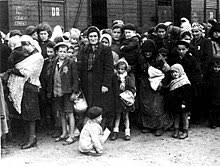Everyone Has Something to Contribute

The desire to be included is universal, a feeling that everyone can relate to. From elementary school through retirement, people brighten at the opportunity to contribute to conversations, problem solving, and projects. But it is teenagers – with their budding individuality and preoccupation with social acceptance – who may have the hardest time having their voices heard and hearing the voices of others. How wonderful it would be for all teens to be able to meet their peers in the community in a safe, nonjudgmental place – and if all of them could work together on a common project.
This was the idea behind Teen Sketch, a program held this spring, in which teens worked together to create gorgeous murals that will soon enhance the walls of the JCC and the Pearlstone Center. Two programs were held, one at the JCC and one at Pearlstone, and each group met twice. The project was very successful not only in the beautiful work of art that emerged from it but also in giving the teens of various talents and abilities a chance contribute and shine, each in their own way.
















